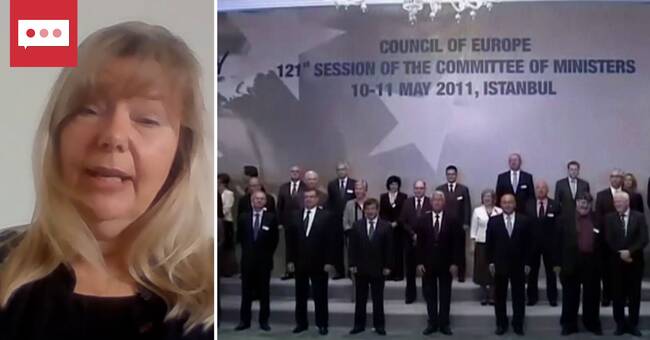The purpose of the Istanbul Convention is to combat violence against women and domestic violence.
The Convention is a co-operation within the Council of Europe and Turkey was a driving force in the creation of the agreement in 2011 in Istanbul.
Since then, 32 countries and the EU have signed the convention.
Sweden is one of the 13 countries that have also ratified the document, and are thus bound to comply with the convention.
Based on human rights
- The Istanbul Convention is strong and based on human rights.
It is legally binding and has a follow-up mechanism to ensure that the states actually implement what they have undertaken, says Anna Collins Falk, international coordinator at the Gender Equality Authority.
Above all, the convention emphasizes that violence against women and violence in close relationships is a structural problem - that it is linked to gender equality and power relations.
Turkey is leaving
Turkish President Recep Tayyip Erdogan announced last weekend that he was leaving the convention.
According to Vice President Fuat Oktay, women are best protected by "preserving Turkey's traditional social structure".
In Poland, the sour national conservative party Law and Justice wants to leave the agreement.
In Hungary, which is ruled by the right-wing Fidesz party, Parliament has voted against ratification.
Bulgaria and Slovakia have also distanced themselves from the Convention.
Criticism from a gender perspective
From Poland and Hungary, the criticism is, among other things, about the concept of "gender".
The Convention distinguishes between gender and gender, and states are urged to use a gender perspective in their efforts to stop violence against women.
- The word gender seems to irritate and lead to wild speculation, says Daniel Höltgren, spokesman for the Secretary General of the Council of Europe, in an interview with German DW.
The Council of Europe has responded to criticism of gender along with erroneous claims that countries would be forced to accept same-sex marriage and a third sex.
- The criticism is part of the cold winds that blow when it comes to human rights, women's rights and gender equality work in general.
The Istanbul Convention has been politicized, says Anna Collins Falk.

